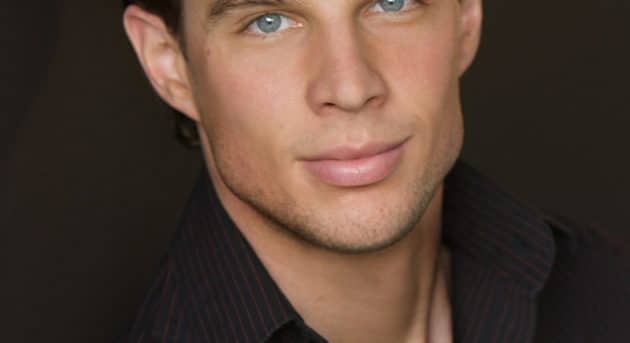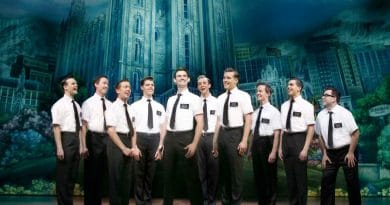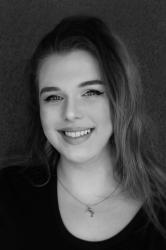Nick Christo on writing Melba: A New Musical
Dame Nellie Melba, born Helen Porter Mitchell, is regarded as one of the world’s most famous operatic sopranos, and for a very good reason. Melba’s influence and legacy on the Arts world is indescribable, and her story is not common knowledge to most, even though she has well and truly made her mark in Australian history.

Enter Nicholas Christo, an established theatrical performer himself, paired with keen composer Johannes Luebbers, and you are rewarded with Melba: A New Musical. A brand new piece of theatre years in the making, Melba is currently playing its premiere season at Hayes Theatre Co. in Sydney. I was fortunate enough to chat to Nicholas about the writing process, as well as his inspirations and motivations behind wanting to create this brand new work.
What first attracted you to writing?
I had been performing out of uni for a number of years, it would have been my fourth year out of uni. And I was realising that I hadn’t really sung in my own voice, in terms of singing with an Australian accent. And I thought ‘God, it would be great to have a story that has that.’ And it was in rehearsals for My Fair Lady [the 2008 Opera Australia production] that someone was reading the biography “I Am Melba” by Ann Blainey, and I looked across and it sort of felt like a lightning bolt moment.
I believe you studied at WAAPA? Could you tell me a bit about that?
I did! And strangely enough, the composer Johannes Luebbers was there at the same time, and that was where we were working together on this. We were actually working together on two shows – he was in the orchestra for and I was performing on stage. We’ve had quite a long association, that goes back all the way to 2004 that we’ve been working together. And actually, Erin [James] was in my year, and Matt [Edwards] the year below – very small world!
With so many plays and documentaries about Dame Melba’s life, why did you decide on musical theatre as a vehicle for this telling of her story?
Because music was such a great part of her life. She dedicated so much of her every waking moment to perfection through her art. Everything that has been dramatised about Melba and her art has always had music at its core – be it the movies, the plays or the miniseries – it’s impossible to tell this story without music.
This show was developed under the New Musicals Australia program – can you tell us a bit about this program? How did that experience influence your book and lyrics?
I started writing [Melba] in 2009 with Johannes, and that was when we bought the rights for the book. We went through and developed it on our own in a workshop in Melbourne in 2013, and then New Musicals was in 2015. As a result of that we were selected over another show, out of, I think, 50 musicals which were submitted, to receive a development through New Musicals and then a season in WAAPA in 2015. Once you develop it through New Musicals, you don’t really get to see it up, you just kind of get to work on a script, so I had to go away and write a whole new script. It was after working with New Musicals that the extra arias were added in, and we divided the role of Nellie into ‘Melba,’ the operatic diva, and ‘Nellie,’ so that we could get the best of both worlds. It was through that workshop in 2015 that the play changed dramatically, and the WAAPA incarnation was the fruit of that.

Why do you think Nellie’s story is something that people should learn about?
I always feel like my ‘litmus test’ for writing is “would I feel comfortable putting on this production in a remote Aboriginal community?” Because I always figure that Music Theatre, and particularly Opera, are very white, middle-class forms of storytelling. And Melba herself did so many regional tours, she had such a connection to remote communities within Victoria and even around the country, that whenever I do anything that I class as ‘art,’ I think “would I feel confident that this would be able to say something to people there?” And this is about a strong female protagonist who was in a toxic and violent relationship, that then left that, and worked as a single mother, and built this empire that conquered the globe. She wasn’t just the most famous Australian woman in the world, she was the most famous person in the world. So this is a woman who was our first cultural export, so there’s a reason she’s on the back of the $100 bill, people just don’t know about it because of the incredible impact she had for arts. And it was amazing that our first foray onto any world stage was cultural, and through the ‘high-end’ of opera. After that, we had the ANZACS, but she was first. And I think it’s important for people to see that with determination and an iron will, incredible things can come from that, regardless of where you’re born. We’re really trying to look at her as, not a star, but how there’s this world that’s split. So there’s two Nellies, the Melba and the Nellie – so you have the incredible diva in Emma Matthews playing the established icon, and then you have Annie Aitken playing the young, gutsy, yet to set herself on her path, ‘star-in-the-making’ mother. And then you get the two personae next to each other, and we can flick between it really clearly.
In studying Melba’s life throughout your writing process, was there anything you learned that you hadn’t known about her before?
Well yes, strangely. It’s funny you ask this! Because the other day, Robert Mitchell’s [who I worked with in ‘08] great uncle was her concert tour producer. And [Robert] mentioned that she was diabetic. And I was like “I didn’t know that!” And I can’t remember reading that in the biography because she was a prolific letter writer, and he has a lot of the information that he’s donated to the public library, about the tour and all of her concert details, and also the letters that she wrote his great uncle. I don’t know how juicy that is, saying that Melba was a diabetic! But I guess the juicier part of course, was that she was notoriously sexual. There were rumours that she’d be ‘frolicking’ with stage hands at the various opera houses she performed at. Particularly in France, for some reason, they know her as being overtly sexual, and we kind of touch on the genesis of that in the show and the idea of female liberation.
This has been a project of yours for quite some time now – has the show changed much since its original conception?
Yes, horrendously! It was supposed to be through-sung originally, a pure Opera, and that got thrown out the window. It was also originally one person playing it [Melba], and then that got discarded and two was born from that because at WAAPA they required that a certain amount of people had certain things to do. So we actually had 3 people playing Nellie and Melba. And the idea of the concert being the anchor of the story was as a result of the New Musicals program. By the time that WAAPA came around that was sort of the lamb had been cooked, and now we were just doing the jus on the side. We were creating some side dishes, but the main course had been cooked. That was at the 6 year mark, and that was actually the first time we’d even heard it run, even in the New Musicals workshop and down in Melbourne we’d only been able to do the first act. So we’d never seen what the piece sounded like from beginning to end, so it’s a very strange thing to be writing in the dark.
Are there any surprises for audiences?

I think Emma Matthews and Annie Aitken are surprising, to be honest. In terms of my motivation for this show, it was to tell something that often people don’t. When you’re in a musical that’s trying to do some peculiar piece of blocking, or have such a strange jump in logic and brush it off by saying “oh it doesn’t matter, it’s just a musical.” And I want to show her as a rounded individual and not in something where events just occur. I’m more interested in having a show that is logical and beautiful, and I think that the stars themselves are the elements of surprise. I’ve always referred to [the show] as an ‘operatic drama,’ because it’s a hybrid of so much. It’s got plays, it’s got musical theatre, it’s got operetta and opera. I feel that ultimately the content is what dictated the form, and we needed to show her singing the arias, so that’s why they’re there. I hope that it’s contemporary, but it gives it back to where where music and our expression began.
What do you think it is about the show that has attracted such praise from audiences?
People are hungry. We have, for so long, had a real drought in terms of new Australian work that also it’s very difficult to put on new Australian work at this scope. We’re trying to do something that’s ‘epic theatre’ but in a small space, and we’re really trying to overwhelm the senses. We’ve got a great group of actors, singers, an incredible musical director, and a breakout star. And we’ve spent a lot of time trying to put this piece together so that it says something about today, and is not just recounting somebody’s life; it’s not just a Wikipedia kind of musical, that this is somebody you want to be and could be today. We want to say something about Australia now, that was always the motivation and I think that’s hitting a nerve. And not in a bran kind of way, like ‘oh, you have to eat your bran’ sort of thing! We didn’t want this to be a ‘this is important because it’s important’ kind of theatre, but ‘this is important because it’s engaging.’ It’s a great musical that just happens to be about an Australian, rather than teaching people a history lesson, and that feels like it’s landing.
Melba: A New Musical is playing at the Hayes Theatre Co in Potts Point until September 9.
Tickets and more details available at: Hayestheatre.com.au




